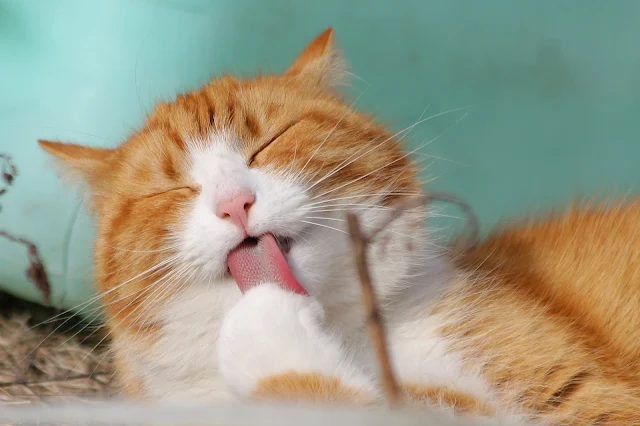A variety of cat foods can help urinary health if your cat is experiencing urinary crystals and you're looking for non-prescription solutions. Never forget to consult with your veterinarian before regulating your diet. Here are a few options:
- Tiki Cat Puka Puka Luau: As a whole, this wet cat food is a good option. Although it's not labeled as a urine diet, cats with urinary tract problems may still benefit from it.
- Weruva Canned Classic Recipes: These are some more superb wet food choices. It offers versatility and high-quality components.
- Purina Pro Plan Urinary Tract Health: a budget-friendly choice for maintaining urinary tract health. It can be purchased in a wet form.
- Hill’s Science Diet Urinary & Hairball Control Wet Food: Despite being a prescription brand, this one is featured here as a substitute. It performs well to control hairballs and maintain urinary health.
{getToc} $title={Table of Contents}
Options for dry cat food
- Dr. Elsey's Clean Protein Dry Food: The best dry cat food option for regular urinary wellness. It is low in carbohydrates and high in protein.
- Farmina N&D Functional Quinoa Urinary Dry Food: This option comes in second and has quinoa for extra nutrition
- Wysong Uretic Natural Dry Food: This is an affordable option that promotes urinary health
What should I feed my cat with urinary problems?
Cats with urinary problems require a diet that helps maintain their urinary health and prevents future issues. It's imperative to opt for cat foods that are specifically formulated for urinary tract health. These foods typically have lower levels of magnesium and phosphorus, which can help reduce the formation of crystals in the urine.
Increasing your cat's water intake is also crucial, so consider incorporating wet food into their diet or using a cat water fountain to encourage them to drink more. Remember, always consult your veterinarian before making diet changes, especially for cats with health issues, to ensure the dietary plan meets your cat's specific needs. Your care and attention to their diet can significantly contribute to their overall well-being and happiness.
What are the symptoms of urinary crystals in cats?
- Increased Urination: Cats with urinary crystals may pee more frequently, use the litter box more, or strain.
- Hematuria: Blood in the urine is a serious sign; pink or crimson urine needs rapid veterinary attention.
- Pain: Cats may exhibit symptoms of pain while urinating, such as frequent licking or refusal to use the litter box.
- Lethargy: Cats with urinary complications may indicate loss of energy or tolerance which can lead to their becoming less active.
- Straining: Any urge to strain for passage of a partial stream of urine calls for alarm. It indicates that while urinating the cat has been experiencing blockage issues or irritation.
- Changes in Appetite: When a cat is suffering from the strangeness of urinating, their desire for food may be smaller.
What ingredient in cat food causes crystals in urine?
- Mineral Concentration: Crystals form when there's an excess of naturally occurring minerals in urine. Factors include abnormally concentrated urine, unusually high or low pH urine, dietary influences, and toxins consumption.
- Handling Artifacts: Crystals in urine can be artifacts due to handling, such as refrigerated or room temperature urine samples.
- Types of Urine Crystals: Struvite, Calcium oxalate, Urate, and genetic factors.
- Underlying Causes: Cats' highly concentrated and acidic urine predisposes them to crystals.
How can I prevent urinary crystals in my cat?
Maintain consistent access to fresh water for hydration:
- Use a cat water fountain to promote drinking.
Dietary changes:
• Feed high-quality wet food to promote urinary health.• To prevent concentrated urine, avoid dry meals.
• Select foods that have regulated magnesium levels.
• Consider an acidifying diet if you have calcium oxalate crystals.
Regular Vet Visits:
• Regular check-ups to monitor health and catch issues early.• Frequent visits may be necessary for cats with a history of urinary crystals.
Stress Reduction:
• Provide a calm environment and use stress-reducing techniques.Litter Box Hygiene:
• Keep the litter box clean to prevent urine retention.Remember, always consult with your veterinarian before making any dietary changes for your cat. They can provide personalized advice based on your cat’s specific needs {alertWarning}
Does Urinary Tract Cat Food Really Work?
The efficacy of cat food formulated for urinary tract health is well-documented, offering a reassuring solution for pet owners. These specialized diets are designed to address and prevent urinary issues by maintaining a balanced urinary pH and minimizing the formation of harmful crystals in the urine. Scientific studies and veterinary practices have consistently observed improvements in cats suffering from urinary problems when switched to these diets.
It's important to note, however, that while these foods can play a crucial role in urinary health, they should be part of a broader approach that includes regular veterinary check-ups and proper hydration. By combining a specially formulated diet with comprehensive care, you can significantly enhance your cat's urinary health and general well-being. Always remember, the transition to a new diet should be undertaken with guidance from your veterinarian to ensure it aligns with your cat’s specific health conditions and needs.

